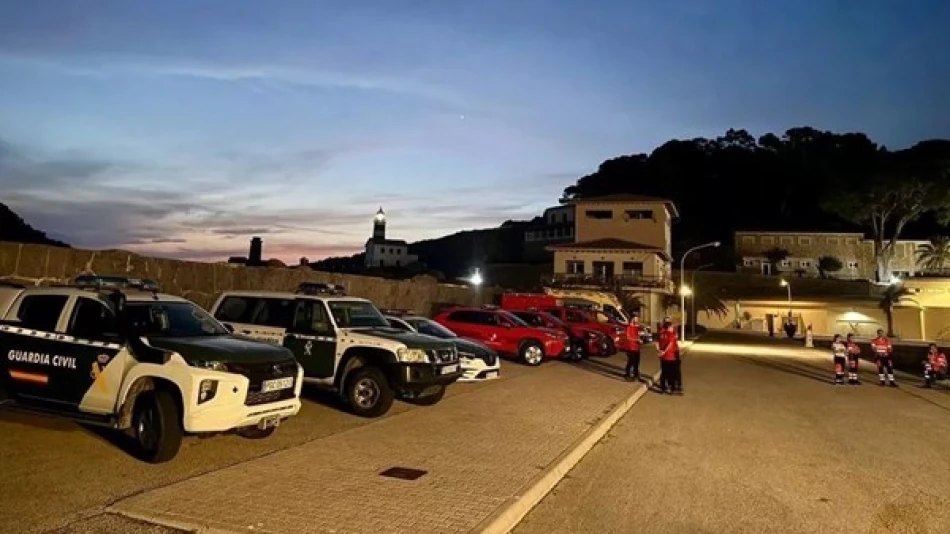
Plane Crashes into Sea Near Spanish Island, Prompting Rescue Efforts
Father and Son Die in Aerobatic Flight Crash Off Spain's Mallorca Coast
A tragic aviation accident claimed the lives of an American military pilot and his 13-year-old son when their light aircraft crashed into the Mediterranean Sea during an aerobatic training flight near Mallorca's northern coastline. The incident highlights ongoing safety concerns in recreational aerobatic flying, particularly when involving family members in high-risk maneuvers.
The Fatal Flight
Spanish security forces confirmed Sunday that rescue services recovered both occupants of a two-seater Team Rocket F-4 Raider aircraft that plunged into the sea Saturday evening. The crash occurred approximately 100 meters offshore near the Port de Sóller lighthouse, witnessed by occupants of a nearby police patrol boat.
The aircraft had departed from a Mallorca airport just two hours before the fatal crash. Local media reports confirmed the plane was performing aerobatic maneuvers immediately prior to impact, suggesting this was likely a training or demonstration flight rather than routine transportation.
Aircraft and Pilot Profile
High-Performance Experimental Aircraft
The Team Rocket F-4 Raider represents a category of experimental aircraft popular among experienced pilots seeking military-jet-like performance in civilian settings. These kit-built planes can reach speeds exceeding 300 mph and are capable of aggressive aerobatic maneuvers, but require significant piloting expertise and carry inherent risks that commercial aircraft do not.
Military Aviation Background
The pilot was described as an American specialist in both military and aerobatic flying, indicating substantial professional experience. However, the presence of his teenage son during what appears to have been an aerobatic flight raises questions about risk assessment protocols in recreational aviation involving family members.
Safety Implications for Recreational Aerobatics
This tragedy underscores persistent safety challenges in the experimental aircraft community. Unlike commercial aviation, experimental and aerobatic flying operates under different regulatory frameworks that place greater responsibility on individual pilots for risk management decisions.
The inclusion of minors in aerobatic flights remains a contentious issue within aviation circles. While legal in most jurisdictions with proper safety equipment, many professional aerobatic pilots advocate for restricting such flights to adults who can fully comprehend and consent to the risks involved.
Mediterranean Aviation Corridor Challenges
Mallorca's airspace sees heavy traffic from both commercial and recreational aircraft, particularly during summer months. The island's mountainous terrain and variable coastal weather conditions can create challenging flying environments, especially for high-performance aircraft operating at low altitudes during aerobatic sequences.
Spanish civil aviation authorities have previously noted concerns about increasing experimental aircraft operations in popular tourist destinations, where rescue resources may be stretched thin during peak seasons.
Industry Response and Regulatory Questions
This incident will likely prompt renewed discussions within aerobatic flying communities about family participation protocols and risk mitigation strategies. The experimental aircraft sector has historically resisted additional regulation, arguing that pilot education and personal responsibility provide adequate safety frameworks.
However, accidents involving minors typically generate broader public and regulatory scrutiny that could influence future policy decisions regarding passenger restrictions in high-risk recreational flying activities.
Most Viewed News

 Layla Al Mansoori
Layla Al Mansoori






